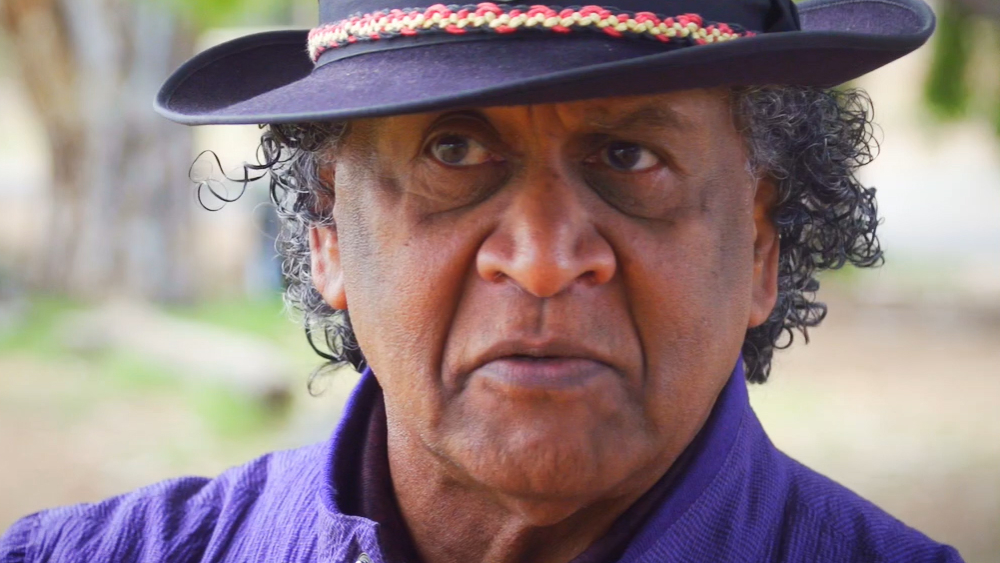Christians call to share land profits with Aboriginal people
First Nations people deserve a greater share of the profits from land granted to churches in colonial times, many Sydney Anglicans believe. The evangelical diocese (church region) is a natural leader in this Australia-wide debate, as the first church founded during the period of white settlement.
Michael Paget, Senior Minister of the influential St Barnabas Anglican Church in inner-city Broadway, recently took to Facebook to ask, “Why haven’t we returned or otherwise allocated the Diocesan endowment [Sydney Anglican Diocese’s investment capital] to the First Nations?”
A wide range of churches throughout Australia received land grants.
Paget’s post sparked an extensive discussion with friends and colleagues, with almost all agreeing it was time to reconsider the amount the Sydney Anglican Diocese gives to its Indigenous Ministry Fund.
Since 2006 the Diocese has put one per cent of its annual income into the fund, topping up the $1.2 million seed money with which it set up the fund in 1997.
“Given it’s over a decade since the 1 per cent decision was put into action, it’s certainly worth asking for a decent review of the current situation,” commented Sandy Grant, Senior Minister at St Michael’s Anglican Cathedral in Wollongong.
Recognition of the need for restitution for a past injustice was spelled out in 2002 by the powerful Standing Committee that advised the Sydney Anglican Diocese on the issue.
“The injustice is a past injustice. When white people first arrived in this land we failed even to recognise that prior to us other peoples inhabited the land: we said it was a land belonging to no one (terra nullius). Accordingly, we simply took the land as if it were ours to take,” a committee member wrote.
“The church benefited directly from this injustice in receiving from the colonial government what was essentially stolen land. Money derived from those lands granted to the church forms the basis of the investments from which the diocesan budget is derived.
“The logic is simple. We make symbolic restitution to the Indigenous peoples of Australia by giving back to them a percentage of the income derived from those investments. We give back from the proceeds of that which was given to us as a church out of that which was stolen from them. By doing this we acknowledge the past injustice and seek in a small way to redress its ongoing consequences.”
But it is not solely a Sydney Anglican issue. Far from it. A wide range of churches throughout Australia received land grants.
“I look forward to the day when the Church in my country adopts a more Christian approach to true biblical reconciliation.” – Ray Minniecon
Neville Naden, until recently chairman of the Aboriginal Evangelical Fellowship, insists consultation between non-Aboriginal decision-makers in the Church and Aboriginal people must be the pathway forward, with “all parties regarded as equal” and “all the cards laid on the table”.
However, Naden – who previously was minister at the Anglican church in Tregear, Sydney – says the most difficult obstacle to overcome has been getting church leaders to agree to dialogue with Aboriginal people.
He says “scare-mongering” and “over-complication of details” are two tactics that have been effectively used in the past to make consultation seem “just too hard.”
“People who have benefited from land dispossession can come up with many, many reasons why getting everyone around the table can’t happen, but I believe they’d be pleasantly surprised by what Aboriginal people would bring to a respectful, covenantal process,” he says. “It would be nice if all the Anglican Archbishops would initiate discussions between our First Nations Peoples around a covenanting process regarding all of the church properties in their dioceses.”
Pastor Ray Minniecon, Former Inaugural Chairperson of the Sydney Anglican Indigenous Peoples Committee, is likewise straight-talking and yet hopeful.
“The Bible says that ‘righteousness exalts a nation.’ Recognising and supporting Australia’s First Nations People’s right to self-determination, land rights and justice is a godly requirement. I look forward to the day when the Church in my country adopts a more Christian approach to true biblical reconciliation.”
“Christians in Australia have always known that Aboriginal land was stolen.” – Laura Rademaker
Dr Laura Rademaker from the Australian Catholic University’s Institute for Religion and Critical Inquiry, has uncovered an acute awareness by Christians of the ethical problem of owning land that was taken from our First Nations peoples.
“Christians in Australia have always known that Aboriginal land was stolen,” she writes. “The question has been how to make amends for this injustice, and whether the non-Indigenous church is willing. The answer was historically to send missionaries to provide humanitarian aid and share the gospel.
“White Christians talked about the ‘debt’ we owe to Aboriginal people for the theft of land, and of ‘paying’ for it (albeit inadequately) through mission.”
A call to re-examine the adequacy of the contribution to Indigenous Ministry reflects the reality that the Sydney Diocese continues to reap great financial profits each year from a fund that came at great cost to Aboriginal and Torres Strait Islander peoples.
It wasn’t just the Anglicans who received such allotments.
To understand why the Diocese reaps such revenue from these lands requires a little history.
Back in the colonial era, when the church played a major role in the delivery of public services, giving ‘glebes’ – allotments of land that served as part of a clergyman’s salary and that could provide ongoing income – to churches was no more controversial than a state government setting aside land for a public school today.
The suburb of Glebe in Sydney still carries the name from its Anglican past. The suburb was sold during the Whitlam Government era during the 1970s.
But it wasn’t just the Sydney’s Anglican Diocese who received such allotments. The Methodists, Presbyterians and Catholics also received glebe lands.
Needless to say, the practice of giving glebe lands looked very different from the perspective of Aboriginal and Torres Strait Islander peoples who were displaced from their homelands and stripped of the custodianship they had carried for thousands of years.
In the 1960s, the Glebe Administration Board of the Sydney Anglican Diocese assumed responsibility for Sydney glebe lands that were under 100-year-long tenancy leases which required significant administration for very little profit. As the leases gradually expired, the diocese found itself the owner of copious amounts of land with very few obligations to the government regarding its use. Effectively, it was ‘on its own’ in terms of ensuring the church’s financial viability.
So began an intense period of selling and developing glebe lands – a period in which, as Stephen Judd and Kenneth Cable detail in their comprehensive volume Sydney Anglicans, the assets shot up in value from $25 million in 1970, to about $100 million in 1985.
“I look forward to the day when the Church in my country adopts a more Christian approach to true biblical reconciliation.” – Ray Minniecon
Similarly, the funds the church had available for education, evangelism and social welfare went up from $50,000 in 1964 to $4 million in 1987. Liquefied and invested, the glebe lands became an ongoing source of income that forms part of the diocese’s financial wealth today.
Many Christians believe it is critical that they embrace the opportunity to pursue ‘restorative justice’ for Aboriginal and Torres Strait Islander peoples and contribute by example to the national conversation.
A Sydney Anglican Minister and lecturer at St Mark’s Theological Centre in Canberra, Reverend Geoff Broughton is the author of The Restorative Christ. He stresses that restorative justice must involve the participation of victims, wrongdoers and their wider communities.
“Although well intentioned, non-Indigenous Christians did not approach Aboriginal people to learn how to do justice.” – Laura Rademaker
Laura Rademaker believes an open dialogue about land ownership between non-Aboriginal and Aboriginal Christians would contribute a helpful model of justice to our national conversation.
“Only last year, Aboriginal people did tell non-Indigenous Australia how to take steps towards justice. But the ‘Uluru Statement from the Heart’ was quickly dismissed. Non-Indigenous Australia has made it clear that we do not want to listen, but want to continue doing ‘justice’ on our own terms, in our own way,” she says.
“Although well intentioned, non-Indigenous Christians did not approach Aboriginal people to learn how to do justice. When white Christians presumed that missions or welfare might ‘repay’ the ‘debt’, they did not ask Aboriginal people if this were a just arrangement.
“The failure to consult suggests a preoccupation with clearing the conscience of white churchgoers, rather than doing justice by Aboriginal people. Evangelicals knew the uncomfortable truth: that they gave charity, not justice, in return for the theft.”





